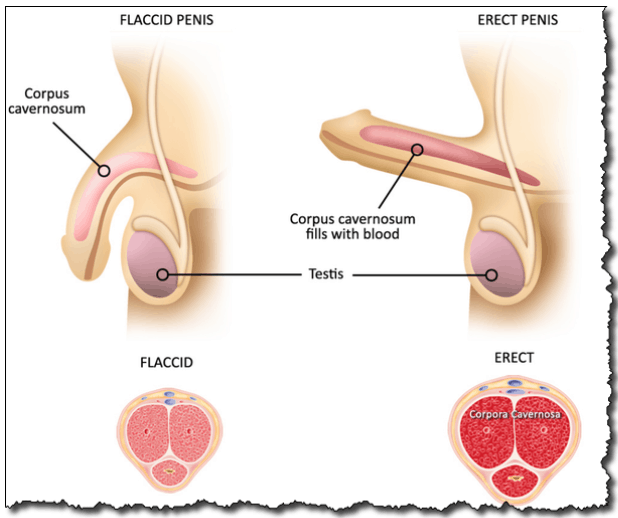
[cmamad id=”22840″ align=”center” tabid=”display-desktop” mobid=”display-desktop” stg=””]
Strangely, blood pressure can make a man’s penis bigger…here’s why…
—-Important Message—-
How to lower blood pressure to increase penis size
Blood flow is the key to getting large and engorged erections.
So if there’s not enough blood flowing to a man’s penis, it will shrink and look smaller than it really is…
But the second you get lots of hot, pumping, oxygen-rich blood flowing to your penis again, the bigger you’ll look…
The chambers of the penis will expand with fresh blood, and this will make you have bigger and more engorged erections almost instantly.

PS. This also lowers blood pressure…
———-
Zinc deficiency and testosterone – the myth and the truth
Zinc is an essential dietary mineral with a great tie-in to testosterone.
And some studies show that low zinc can cause mental problems that may lead to dementia.
Scientists also know that people with low zinc have a higher risk of high blood pressure.
Researchers have found that zinc affects the way the kidneys handle sodium (salt).
The research could explain the relationship between zinc and blood pressure.
It could also explain the seemingly contradictory effect of salt on blood pressure.

These researchers carried out their animal experiments at Research Service, Atlanta VA Medical Center and published their results in the American Journal of Physiology.
Zinc is a dietary mineral that has dozens of functions in the body. Low levels of zinc can lead to all sorts of problems.
“Zinc deficiency is a common comorbidity of many chronic diseases.”
People with type 2 diabetes or chronic kidney disease are often low in zinc.
These diseases are associated with a greater risk of high blood pressure.
“Zinc deficiency is a common comorbidity with type 2 diabetes and chronic kidney disease. In these patients, the incidence of hypertension is high.”
[cmamad id=”22841″ align=”center” tabid=”display-desktop” mobid=”display-desktop” stg=””]
Other data shows that low dietary zinc intake increases the risk of high blood pressure.
“Populations with low dietary zinc intake of zinc have a high prevalence of hypertension.”
But researchers were not sure whether zinc deficiency caused blood pressure problems – or if it was just associated with them.
“With the zinc deficiency alone is sufficient to alter blood pressure is unknown.”
So the researchers conducted a number of experiments with mice.
They gave one group of mice adequate dietary zinc. They put the other group of mice on a zinc-deficient diet.
“Adult mice were fed a zinc-adequate or a zinc-deficient diet to explore the role of zinc in blood pressure regulation.”
Zinc deficiency caused blood pressure problems in the mice.
Animals that didn’t get enough zinc had periods of high blood pressure.
“These results show that zinc deficiency provides a biphasic blood pressure response, characterized by episodes of high blood pressure.”
These results support the theory that zinc deficiency causes high blood pressure.
After that, they gave some of the zinc-deficient mice a diet that gave them adequate zinc.
“A subset of zinc-deficient mice were returned to a zinc-sufficient diet.”
When those animals got enough zinc, their blood pressure problems went away.
Further experiments showed the researchers what was going on.
The researchers found that zinc changes the way that the kidneys handle sodium.
“The sodium chloride transporter is a zinc-regulated transporter that is upregulated by zinc deficiency.”
The way that kidneys deal with sodium has a huge effect on blood pressure.
The animals with low zinc – their kidneys held on to too much salt.
When they gave the animals enough zinc, the animals were able to remove the excess salt in their urine – and then their blood pressure normalized.
These results could explain some of the conflicting studies done on salt and blood pressure over the years.
Low zinc levels may actually be the cause of blood pressure problems affected by salt.
“Understanding the mechanisms of zinc-deficiency-induced blood pressure dysregulation may have an important therapeutic impact on hypertension treatment.”
Zinc deficiency could be a major cause of high blood pressure.

Researchers at the University of Texas conducted a deep study into zinc requirements. They published their findings in the Journal of Trace Elements in Medicine and Biology.
That research found that more than one in four people could be at risk of zinc deficiency.
“Conservative estimates suggest that more than 25% of the world’s population is at risk of zinc deficiency.”
Zinc supplements are easily available (though it is possible to take too much zinc).
Oysters are a great dietary source of this essential mineral.
You should consult a healthcare practitioner about treating and diagnosing health-related problems.
—-Important Message—-
Attention Pre-diabetics
Now, you will get better… And you won’t ever have to learn to give yourself shots or do twice-daily blood sugar “finger pricks.”
Not for you.
No: You won’t ever get diabetes.
And if you WERE diabetic, now you are NOT.
What’s changed?

A simple, 30-cent remedy, recently rediscovered, can reverse type 2 diabetes in men.
It works by inhibiting lipolysis.
It literally forces your cells to thrive on sugar again.
So you now always have normal blood sugar thanks to this 30-cent remedy.
Try this: In 3 months, go to the lab. I promise you that they’ll say “your blood sugar is normal” just from this.
Click here to discover how to use this 30-cent remedy and reverse your diabetes.
———-

- Zinc Deficiency Induces Hypertension by Promoting Renal Sodium Reabsorption https://www.physiology.org/doi/abs/10.1152/ajprenal.00487.2018
- Zinc requirements and the risks and benefits of zinc supplementation https://www.sciencedirect.com/science/article/pii/S0946672X06000411?via%3Dihub
- Zinc — Health Professional Fact Sheet - Office of Dietary Supplements https://ods.od.nih.gov/factsheets/Zinc-HealthProfessional/
- Zinc | Linus Pauling Institute | Oregon State University https://lpi.oregonstate.edu/mic/minerals/zinc
